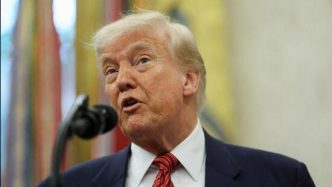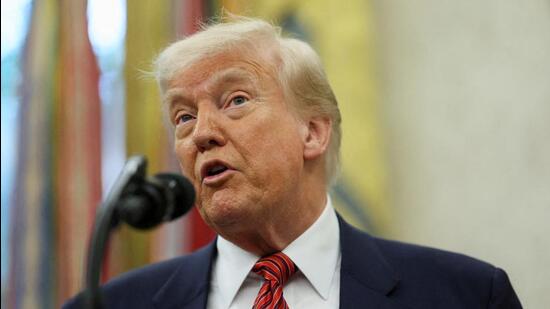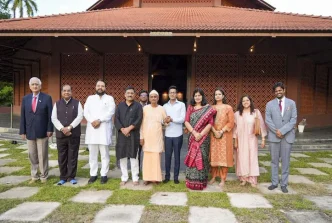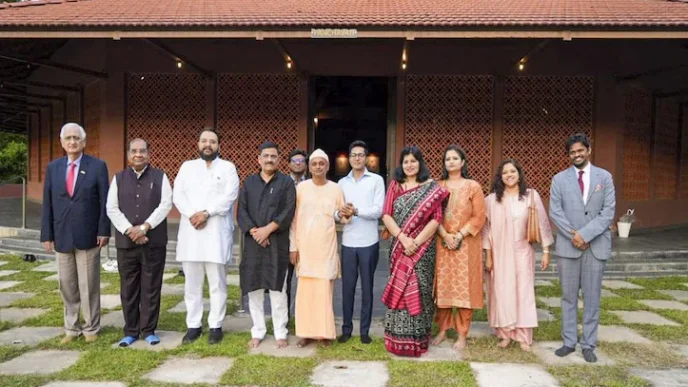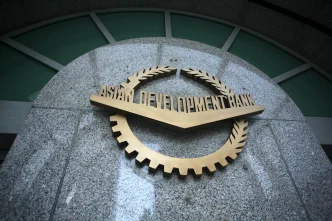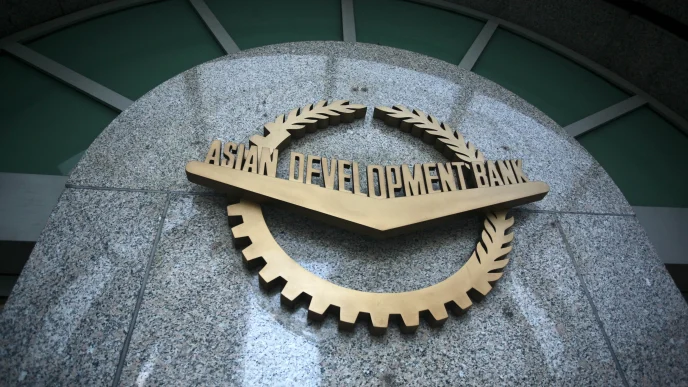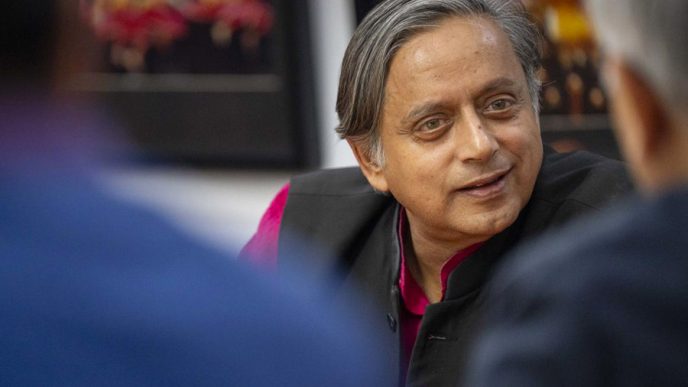People in the know have reported that the United States has rejected India’s May 9 notice at the World Trade Organization, which proposed retaliatory action against Washington’s imposition of steep import tariffs on steel and aluminum. The United States has stated that its actions were not safeguard measures, and as a result, it will not engage in any discussions with New Delhi regarding the matter.
The individuals cited above, who requested anonymity, stated that India may respond by proportionally suspending concessions granted to American imports (such as almonds and pecans) and imposing higher customs duties on metals originating from the United States. The Indian notice was in opposition to the United States’ decision on February 10 to impose 25% levies on all steel and aluminum imports, effective from March 12. The issue has been further exacerbated by the Trump administration’s decision to double tariffs on metals to 50% effective June 4, citing national security.
India formally notified the World Trade Organization (WTO) on May 9 that it could suspend “concessions and other obligations” granted to the United States “after the expiration of 30 days from the date of this notification,” which would be June 8. This action was taken in response to the US’s measure to increase import duties on steel and aluminum in order to protect American metal industries.
The United States informed the World Trade Organization (WTO) on May 22 that India’s proposed retaliation was not in accordance with the multilateral trade rules in response to India’s notice. Washington declared that the tariffs imposed by the United States on metals were “not safeguard” measures. “Consequently, India’s proposal to suspend concessions or other obligations under Article 8.2 of the Agreement on Safeguards with respect to these measures is without foundation,” it stated in its most recent communication to the WTO.
In addition, the United States declined to engage in discussions or negotiate a resolution to the dispute with India, citing the fact that the tariffs are not safeguard measures. This decision was made by New Delhi independently. The American communication to the multilateral body further stated that the United States will not engage in discussions regarding the Section 232 tariffs under the Agreement on Safeguards, as we do not consider them to be a safeguard measure.
Despite the fact that India’s commerce ministry did not respond to a query regarding this matter, individuals in the know have indicated that India may retaliate unless the United States agrees to a preferential treatment for India on these metals as part of the ongoing negotiations for an early deal (first tranche) within the proposed Bilateral Trade Agreement (BTA). They stated that both nations are striving to reach an early harvest agreement by the end of the month, and a negotiating team from the United States is anticipated to visit India this week.
According to experts, India is significantly affected by the United States’ substantial tariffs on steel and aluminum. “The repercussions are immediate for India.” India exported $4.56 billion of iron, steel, and aluminum products to the United States in FY25. The most significant categories were $587.5 million in iron and steel, $3.1 billion in articles of iron or steel, and $860 million in aluminum and related articles. Ajay Srivastava, the founder of the Global Trade Research Initiative (GTRI) and a former Indian Trade Service officer, stated that the profitability of Indian producers and exporters is now at risk due to the significantly increased US tariffs on these exports.
“India has already submitted a formal notice to the World Trade Organization (WTO) indicating its intention to impose retaliatory tariffs on US goods in response to the previous steel tariffs.” He also stated that it is uncertain whether India will respond by increasing tariffs on specific US exports within a month, given that President Donald Trump has recently doubled the tariffs.
In response to the United States’ imposition of safeguard tariffs on Indian steel and aluminum, India had proposed to levy proportional retaliatory import duties on American products, according to a report in the Hindustan Times on May 14. “The duty collection on the relevant products originating in India would be US$ 1.91 billion, and the safeguard measures would impact the importation of these products into the United States by US$ 7.6 billion.” Consequently, India’s May 9 notice to the World Trade Organization (WTO) stated that the proposed suspension of concessions would result in an equivalent quantity of duty being collected on products that originate in the United States.
Nevertheless, the United States maintained at the World Trade Organization (WTO) that its tariffs on steel and aluminum are based on national security considerations, rather than “safeguard measures,” as India claimed. “Disputes of this nature are frequent and routine at the World Trade Organization.” One of the individuals mentioned above stated that disputes lack genuine significance in the absence of an effective appellate body at the multilateral forum.
This issue is challenging, according to the second individual. In 2018, the previous administration of Joe Biden implemented a 25% tariff on specific steel and a 10% levy on aluminum items in the name of national security. India responded to this by imposing customs duties on 28 US products, including almonds and walnuts, and filing a complaint with the World Trade Organization (WTO) in June 2019. Nevertheless, the two parties ultimately resolved the dispute amicably by implementing mutually agreed-upon solutions (MAS). The United States consented to provide market access to steel and aluminum products under the exclusion process of Section 232 of the Trade Expansion Act 1962 in June 2023, and India consented to eliminate the additional duty (retaliatory tariffs) on specific American products. The MAS is a mechanism within the World Trade Organization (WTO) that enables its members to resolve disputes amicably without undergoing the formal procedure of a settlement mechanism.
